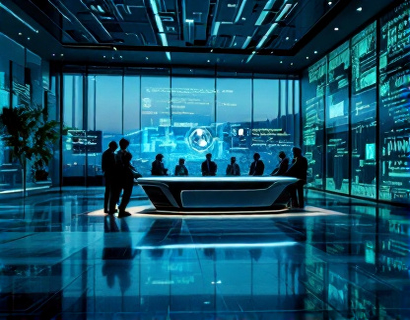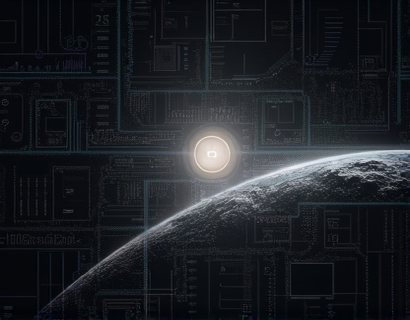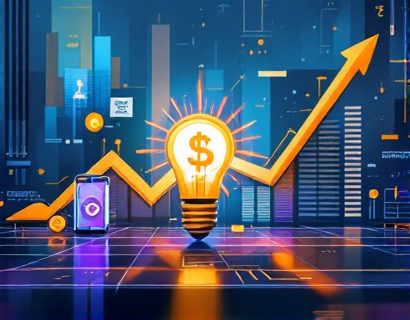Elevate Your Restaurant: Expert Software for Streamlined Operations and Enhanced Customer Experiences
In the competitive world of dining, restaurant owners and managers are constantly seeking ways to optimize their operations and elevate the customer experience. One of the most effective tools at their disposal is expert management software, designed to streamline workflows, enhance communication, and deliver exceptional dining experiences. This software is not just a luxury but a necessity for modern restaurants aiming to stay ahead of the curve and ensure long-term success.
Management software for restaurants serves a dual purpose: it streamlines internal operations and enhances external customer interactions. By integrating various aspects of restaurant management into a single, user-friendly platform, these tools empower owners and staff to focus on what they do best—providing outstanding food and service. Let's delve into the key features and benefits of such software, exploring how it can transform your restaurant into a model of efficiency and customer satisfaction.
Streamlining Internal Operations
One of the primary advantages of restaurant management software is its ability to streamline internal operations. From order management to inventory control, these tools automate and simplify tasks that were once time-consuming and prone to errors. Here are some of the key internal processes that benefit from such software:
- Order Management: Automating the order taking process reduces mistakes and speeds up service. Digital menus and real-time updates ensure that orders are accurate and efficiently processed.
- Inventory Management: Tracking stock levels in real-time helps prevent overstocking or running out of critical items. Alerts for low stock and automated reordering further enhance efficiency.
- Staff Scheduling: Intelligent scheduling tools consider employee availability, legal working hours, and historical performance data to create optimal schedules. This ensures adequate staffing during busy periods and minimizes overtime costs.
- Financial Management: Integrated financial tools provide real-time insights into revenue, expenses, and profit margins. This data-driven approach helps in making informed decisions and maintaining financial health.
By automating these tasks, restaurant management software frees up valuable time for staff, allowing them to focus on providing exceptional service. The reduction in manual errors and the increase in operational efficiency contribute to a smoother, more organized kitchen and front-of-house experience.
Enhancing Customer Experiences
Customer satisfaction is paramount in the restaurant industry, and management software plays a crucial role in enhancing the dining experience. Here’s how:
Personalized Service: By integrating customer data and preferences, staff can offer personalized recommendations and service. This level of attention to detail fosters customer loyalty and positive word-of-mouth.
Seamless Reservations and Waitlist Management: Online reservation systems and dynamic waitlist management tools improve the customer booking experience. Customers can easily make reservations, and staff can manage waitlists more effectively, reducing no-shows and improving table turnover.
Feedback and Reviews: Collecting and responding to customer feedback in real-time demonstrates a commitment to quality and continuous improvement. Management software can aggregate reviews from multiple platforms, providing a comprehensive view of customer sentiment.
Loyalty Programs: Implementing and managing loyalty programs is simplified with management software. Rewarding repeat customers with discounts, free items, or exclusive offers encourages repeat business and builds a loyal customer base.
Improving Communication and Collaboration
Effective communication and collaboration are essential for the smooth operation of any restaurant. Management software facilitates this by:
- Real-Time Communication: Integrated messaging and notification systems ensure that staff is always informed about important updates, changes, and emergencies. This reduces miscommunication and ensures everyone is on the same page.
- Cross-Department Coordination: Streamlining communication between the kitchen, front-of-house, and management ensures that all departments work in harmony. This coordination is crucial for maintaining high standards of service and food quality.
- Customer Interaction Tracking: Tracking customer interactions across different touchpoints provides valuable insights into customer preferences and behavior. This data can be used to tailor marketing efforts and improve the overall customer experience.
Boosting Efficiency and Reducing Costs
The implementation of management software leads to significant efficiency gains and cost reductions. Here’s how:
By automating repetitive tasks, staff can focus on higher-value activities that directly impact customer satisfaction. This shift not only improves productivity but also reduces the risk of human error, leading to higher quality service and fewer wasted resources.
Integrated financial management tools provide real-time insights into expenses and revenue, enabling better budgeting and cost control. Identifying areas of inefficiency and making data-driven decisions helps in reducing unnecessary costs and optimizing resource allocation.
Additionally, the ability to manage inventory more effectively minimizes waste and ensures that stock levels are always optimal. This not only saves money but also contributes to sustainability efforts by reducing food waste.
Enhancing Marketing and Sales
Management software can also play a significant role in marketing and sales strategies. Key features include:
- Marketing Automation: Automate email campaigns, promotions, and loyalty program notifications to keep customers engaged and informed about special offers.
- Sales Reporting: Generate detailed reports on sales trends, customer behavior, and menu performance. These insights can inform menu engineering, pricing strategies, and targeted marketing efforts.
- Online Presence Management: Manage and optimize your restaurant’s online presence across multiple platforms, ensuring consistency and accuracy in branding and information.
By leveraging these features, restaurants can enhance their marketing efforts, attract new customers, and retain existing ones, ultimately driving sales and growth.
Conclusion
In conclusion, expert management software is an indispensable tool for modern restaurants looking to elevate their operations and customer experiences. By streamlining internal processes, enhancing communication, and providing valuable insights, this software enables restaurant owners and managers to focus on delivering exceptional dining experiences. The benefits extend beyond just operational efficiency; they contribute to a stronger brand, higher customer satisfaction, and ultimately, greater profitability. Embracing such technology is not just a strategic advantage—it’s a necessity for success in the dynamic and competitive restaurant industry.








































